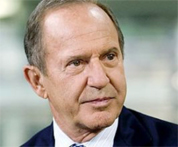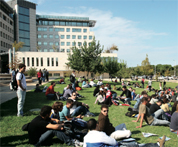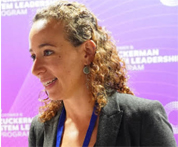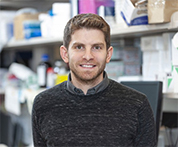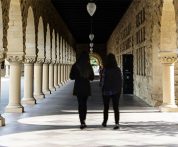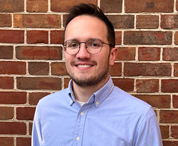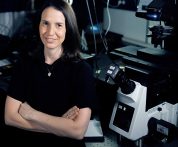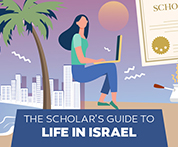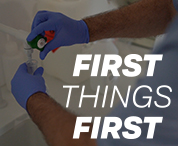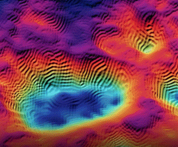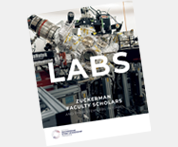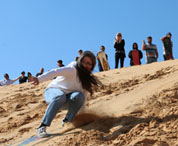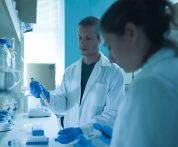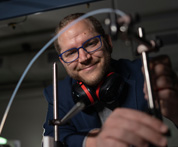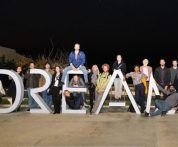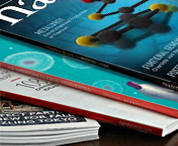Dr. Yaron Bromberg is a senior lecturer at the Racah Institute of Physics at the Hebrew University of Jerusalem, and an experimental physicist who studies quantum optics and other related topics. His Complex Phototonics Lab experiments with ways light interacts with complex photonic systems, and investigates what happens to photons, the fundamental particles that make up light, when they are sent through opaque materials. This method may potentially have applications such as imaging through the skin or communicating through fog.
Dr. Bromberg completed two postdoctoral fellowships: one at Harvard Medical School, followed by another at Yale University. He co-authored many peer-reviewed articles and is known as an excellent collaborator. He has already had an impact on the scientific community. At the same time, he is extremely committed to his teaching, and hopes to expose as many people as possible to the joy of doing science.
Please describe your current research, the focus of your lab, and the practical implications of your research
In our lab, we study fundamental properties of light. Physicists have studied light since ancient times. Only when quantum mechanics began in the 20th century did we discovered that light performs as particles, or photons. How does this affect phenomena related to light? We try to improve our understanding of light and its many applications, such as imaging, microscopy, communications, and lasers. Once we understand how quantum properties of light come into play, we can apply it to improve technology.
This is a fun decade to be a physicist because we are in the Second Quantum Revolution. We try to utilize these unbelievable discoveries beyond experiments in the lab. Specifically, we are exploring quantum communications and the implementation of cyber security. For example, if I want to share an encrypted message, I share a key with the other person. But what about governments who want to spy on each other? Instead of generating a key on software level, we create it on the hardware by sending weak pulses of light to super sensitive sensors that can detect the lowest levels of light. These particles have special features from quantum mechanics that are encoded into these photons to protect them. Once you probe them, you introduce noise. Therefore, we can monitor the noise level and if it increases, we know someone is listening.
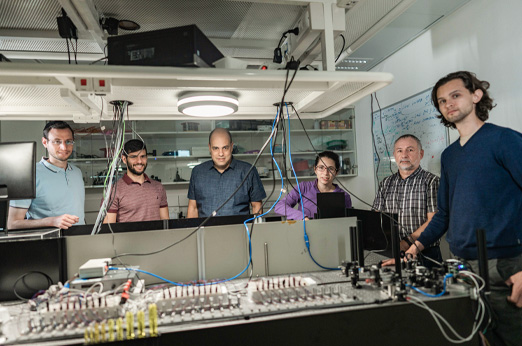
What do you enjoy most about your research?
I’m excited about technology – and it boils down to the basic principles of quantum mechanics, the building blocks you need to make technology work. It’s not so far removed from basic physics courses – the gap is not that wide – so I can describe a very technical level of detail to an undergrad student in physics. My students are amazing – the best in the world. You can never go too deep, even just by teaching a course. We can always learn new things. My students ask a question that will open up a new answer, and that stimulates the conversation with colleagues.
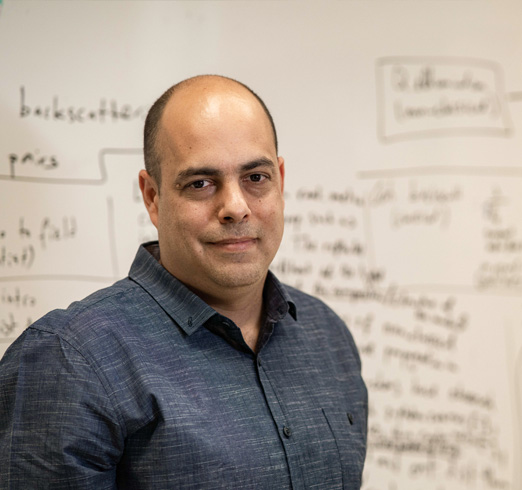
What does it mean to you to be part of the Zuckerman Faculty Scholars Program?
It is so much fun to meet all the scholars! The program keeps growing in different disciplines. Everyone has this passion in common, you feel not alone in this respect – we’re all one team trying to make a big impact. And when you are part of a team, you are proud of each other’s accomplishments. The Zuckerman program is putting so much into science in Israel. I feel very fortunate to have a great lab. I enjoy being a PI and collaborating with my fellow Zuckerman scholars.
We all share the same mission with the Zuckerman program: making good science in Israel and keeping science at a level of excellence. We want to educate more people and make it more accessible, bring more women into STEM, and see more people from different segments of society in science fields.
Where do you hope your research will have the greatest impact?
I hope to impact the field of quantum imaging. I am passionate about developing a microscope that will give the sharpest image allowed by the laws of quantum mechanics.

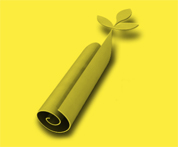 ISRAELI COUNCIL FOR HIGHER EDUCATION
ISRAELI COUNCIL FOR HIGHER EDUCATION MIT-Israel Zuckerman STEM Fund for Faculty Collaboration
MIT-Israel Zuckerman STEM Fund for Faculty Collaboration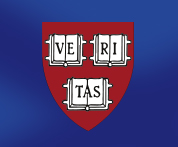 The Zuckerman Travel and Research STEM Fund at Harvard
The Zuckerman Travel and Research STEM Fund at Harvard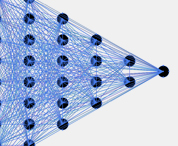 Zuckerman AI Fund at Technion
Zuckerman AI Fund at Technion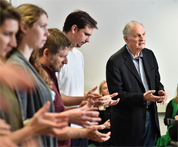 Alan Alda Communicating Science
Alan Alda Communicating Science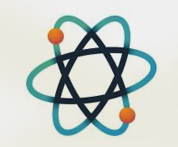 Zuckerman Institute – ScienceAbroad
Zuckerman Institute – ScienceAbroad Zuckerman Institute – America-Israel Friendship League partnership
Zuckerman Institute – America-Israel Friendship League partnership

